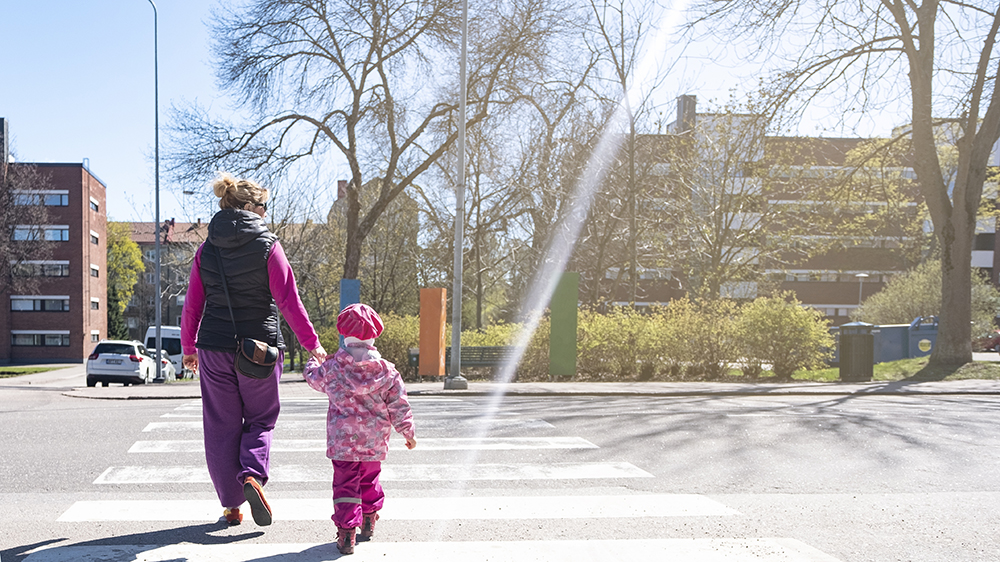Outlook for regional economies moderately positive

The coronavirus epidemic has weakened the economic and employment prospects in the regions for more than a year, but the outlook is now cautiously positive. The improved expectations are driven by the assumption of a swift rollout of COVID-19 vaccine, an improving epidemiological situation and the lifting of restrictions.
The estimates are based on a review of the current situation and short-term prospects in the regions and subregions. The review, which was conducted in March–April 2021, was prepared by the ELY Centres together with other regional developers and published on 10 May.
Recovery in services could take a long time but prospects for industry look brighter
After a difficult year, many sectors and companies, particularly the service sector, are facing major difficulties, and it can take a long time for them to recover from the crisis. The COVID-19 restrictions and the decreased demand have had the most serious impact on personal services, tourism, accommodation and catering services, the cultural and event sectors and passenger transport across the country.
The prospects for the event and cultural sectors look very uncertain this summer. The COVID-19 pandemic has had a major impact on the aviation sector, which dampens the outlook for the capital region and Vantaa. However, the lake region and the Turku archipelago, among others, are expected to benefit from a robust summer season driven by domestic tourism.
The outlook for industry is more optimistic, which is reflected in improved expectations in industrial-based regions. The technology industry has performed relatively well and the near-term outlook for the sector is positive. The expansion of Valmet Automotive’s operations and additional recruitment have led to improved prospects for the Uusikaupunki and Salo regions. In the Turku area, the pharmaceutical industry and the diagnostics sector are experiencing strong growth on the back of the coronavirus epidemic. In the maritime industry, the order book of the Rauma shipyard extends to 2025 and new orders have further brightened the outlook. Meanwhile, the current order book of the shipyard in Turku extends to 2025, but the crisis in the cruise sector has weakened its future prospects. In Ostrobothnia, Central Finland and Northern Savo, the positive expectations are largely based on the well-performing technology industry.
A number of planned investments in renewable energy, bioeconomy and circular economy will lay the foundation for economic growth in the regions in the longer term. The most significant investment is Metsä Group’s new bioproduct mill in Kemi, which will have major positive effects on the economy of Northern Finland, in particular. On the other hand, Stora Enso’s decision to shut down its Veitsiluoto paper mill by the end of this year will dim economic prospects for Lapland.
Concerns over long-term and youth unemployment and continuing labour market mismatch
It is expected that long-term unemployment will continue to increase rapidly, which is a major concern for regions. Youth unemployment has also increased as a result of the coronavirus crisis and it has become increasingly difficult for new graduates to find work, especially in the sectors affected by COVID-19 restrictions.
Despite the rise in unemployment, the availability of skilled labour has not really improved, and this problem will rapidly get worse as the economy begins to pick up again. The factors behind the labour market mismatch have not disappeared, and in some sectors, such as health and social services and IT, the mismatch is expected to worsen. Developing education to better meet employers’ needs is one solution to the problem. Increasing work-based immigration will also play an important role in the future.
As a result of the coronavirus crisis, the way people work has changed, especially within expert work. The growth in remote work and multi-location work is considered an opportunity by many regions to promote their vitality.
Inquiries:
Jouko Nieminen, Strategy Director, Development and Administration Centre for the ELY Centres and TE Offices, tel. +358 295 022 769
Hanna-Maria Urjankangas, Chief Specialist, Ministry of Economic Affairs and Employment, tel. +358 29 506 3739
